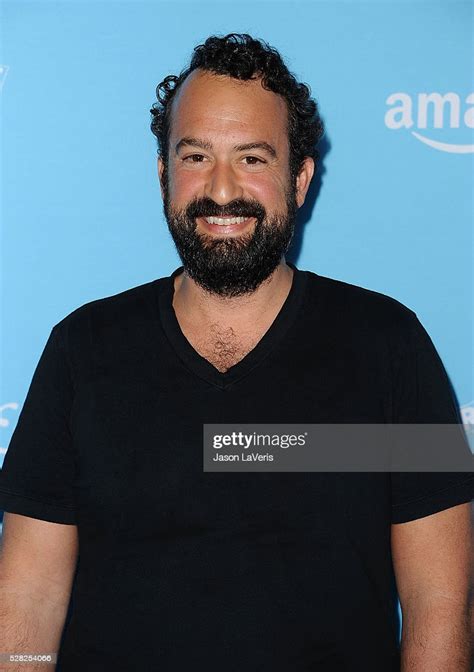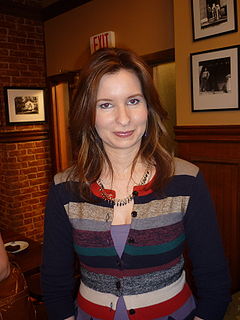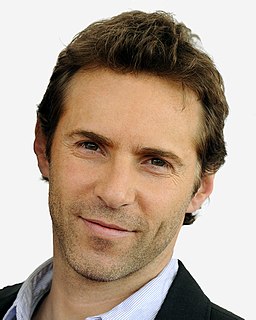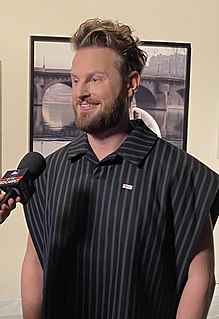A Quote by Timothy Hutton
A film has a sort of life over time, whereas a TV show comes up in your living room, and its immediate, and people write about it.
Related Quotes
I just feel like TV takes more risks than film. Film has gotten very safe: it's very compartmentalized about what type of things will be successful. And whereas in TV, since all these new platforms opened, they're saying to writers, go out there, write the most different show that you can write. Write something that's really original and different.
Film and television are very different. On the TV show, we do seven or eight scenes a day, so time and money are of the essence, and we have zero room for creativity because you've got to do each scene in only five takes. Whereas, on a film, you have an entire day to film one scene, so you have so much time to choose how you want to fill in a scene.
Stuff that happens to you in your life when you're shooting a TV show, you have to be careful, because it might end up in the show. And that's what I think is the neat thing about TV: how alive it is, and how the writers respond to the stimulus that they're getting from the actual actors. Whereas a movie is more hermetically sealed.
I'm not entirely sure why I write about family, but I do know that it hasn't stopped interesting me. You meet and leave other people at different stages of your evolution, whereas family is made up of people who are constant links in your life, who know you over the course of time and have your complete curriculum vitae in their heads.
In the stand-up comedy top, there's room for everyone - if you're good, there's room for everyone. You'll put on your own show - no one casts you. You cast your own show as a stand-up comedian. When you get good at stand-up comedy you book a theater and if people show up, people show up. If people don't show up, people don't show up. You don't have a director or a casting agent or anybody saying if you're good enough - the audience will decide.
I really became aware of the fact that, oh yeah, whereas a lot of other shows are sort of cynical or jaded or just sort of coming from that sort of energy, our show is very, very about these love-based relationships. It really comes out, a lot of times, in a sweet way. And I think people find that refreshing about our show. That's one of the things I definitely picked up on.
I feel that the thing about film and particularly about TV, actually, is it's being created now. We're living in the best time so far because there are many more women writing and women directing, women producing, and people are finally catching on to the fact that women want to go and buy tickets to see female characters and more than one in a film. So I actually think it's a very fertile time to be a woman over 40.
I didn't sit down and write a song like, "I want to write a song about this," but I just spent so much time living in this affectively charged space of the live show, with its risks and the incredible reward that comes from people knowing me, recognizing me, affirming me. And then I would wake up in the morning and have an eight-hour drive where I would read George Saunders and listen to Grouper and Pure X. And you bond so much with your tour-mates and your bandmates because it's this weird, quite desperate way of living.
When I got to 'Looking,' I didn't know that you could write stuff and they would put it on TV. That was that experience. My boss was Andrew Haigh and he came from film; he had never done TV. It was his first TV show, and he was running it. And I think he was like, 'Write it, and we'll put it on.' It was lovely.



































